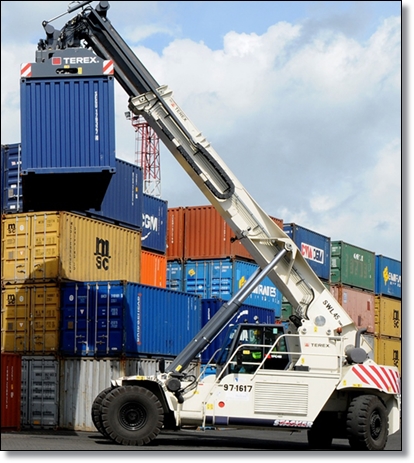WTO and Africa Optimism

 |
|
Activity at Mombasa port Photo courtesy |
I talk about Africa's dynamism – that it has the youngest population and the highest growth. And I talk about the sense of energy and purpose that I find in every African leader or businessperson I meet. Right now I think Africa's potential is unmatched. And I think that trade has a crucial role to play in helping to realize this potential. I know I'm not alone in this view.
It was notable that a recent survey of global public opinion found that it was not the people of Asia or North America who have the most positive view of trade – but the people of Africa. And this is largely down to the leadership that ministers and policymakers.
There is a lot of excellent work going on to lower barriers and streamline procedures so that you can trade with each other more effectively. I have heard numerous examples of transit costs being halved, and transit times being reduced from days or weeks to just hours.
The African Union's Action Plan for Boosting Intra-African Trade is very important here. And of course there is your work towards creating a Continental Free Trade Area. This regional integration is totally compatible with the multilateral agenda – indeed I think this work will support wider integration into the global trading system.
The fact that intra-African trade remains just a tenth of Africa's total trade shows that improving regional integration is critical. But it also shows that engaging at the global, multilateral level remains vital.
Since July there has been an impasse in the implementation of the Bali package which has had a paralyzing effect on negotiations across the board. The impasse related to the political link between two issues – the decision on Public Stockholding for Food Security Purposes, and the Trade Facilitation Agreement. I'm pleased to say that we resolved this impasse. It was a major breakthrough for all of us. WTO members came together in a Special General Council meeting and took three very important decisions.
First, they clarified the Bali Decision on Public Stockholding for Food Security Purposes to say that the peace clause agreed in Bali will remain in force until a permanent solution is found to that issue. Second, members adopted the protocol of amendment which formally inserts the Trade Facilitation Agreement into the WTO rulebook. This clears the path for the Trade Facilitation Agreement to be implemented and come into force. Members will now go ahead and ratify the Agreement, following their domestic procedures. It is estimated that the Agreement will reduce trade costs by up to 15% in developing countries.
This is particularly important for Africa where the cost of customs procedures tends to be higher – around 30% higher than the global average according to UNECA. But, moreover, this Agreement is important for Africa because it supports your efforts at regional integration in a very practical way.
For the first time in the WTO's history, this Agreement states that assistance and support should be provided to help developing countries achieve the capacity to implement it. So, for those countries with less-developed customs infrastructure, the Agreement will mean a boost in the technical assistance that is available to them.
To ensure that this commitment is honoured, I worked with the coordinators of the Africa Group, the LDC Group and the Africa, Caribbean and Pacific Group at the WTO. We decided the best approach was to create a new initiative, to be called the Trade Facilitation Agreement Facility.
This Facility will ensure that LDCs and developing countries get the help they need to develop projects and access the necessary funds to improve their border procedures, with all the benefits that that can bring. The Facility is already in place and it became operational when members took this decision last week. And donors are already very interested and involved. We have already received a great deal of support and interest – and we have built strong partnerships with a number of organisations in support of this work, including the World Bank.
Members took a third decision – which was arguably the most important of all. It concerns the WTO's post-Bali work. With this decision Members agreed that this work will resume immediately and that they will engage constructively on the implementation of all the Bali Ministerial Decisions. This means taking forward: the decisions on agriculture and cotton, the monitoring mechanism, which originated from an Africa Group proposal, and the LDC decisions on duty-free-quota-free, the services waiver and rules of origin.
It is vital that we use the momentum we have now to take these decisions forward with the priority they deserve. Moreover, this decision means agreeing the work programme on the remaining DDA issues.
All 160 WTO members committed to delivering the work program by a new target date of July 2015. I think this is an important moment – and a real opportunity. The big, tough issues of agriculture, services and industrial goods will all be back on the table. We are also approaching an important moment in the Aid for Trade calendar. The Fifth Global Review of Aid for Trade will be held at the WTO in Geneva from 30 June to 2 July 2015.
This is also an important time for the Enhanced Integrated Framework for the LDCs – of which the WTO is a key partner. The EIF is now up for evaluation and I have been arguing strongly for the initiative to continue into a new phase, so that it can continue to assist LDCs to become more active players in the global trading system.
So, while there is a lot of work ahead of us, I think the WTO is going into the New Year with a lot of momentum.
By Roberto Azevedo
WTO Director-General.
